Burning Question: Do Bike Brands Have Targets To Reduce CO2 Emissions?
2021 is a critical year in the fight against climate change. We've seen the record-breaking heatwaves, droughts and flooding, making the issue feel more immediate than ever. You may also have seen the IPCC's latest "code red" climate report, and the crucial COP26 climate talks are due to start later this month.
In the bike industry,Trek released the first-ever sustainability report from a major bike brand, and we've seen a growing number of cycling companies making climate-friendly changes to the way they operate. But in many cases, it's hard to quantify how much difference these actions will make, and some policies may be pretty negligible on the scale of a company's total emissions.
Looking at companies outside the bike industry, a growing number are now setting voluntary targets to track and reduce their own emissions. In the best cases, they pay third-party auditors to keep track of all their emissions, including those generated by their suppliers, and have concrete plans to reduce and offset them.
Although cycling is among the greenest modes of transport, mountain bikes are more of a luxury good than a transport solution; our bikes are more often in a car than replacing one. And according to Trek's report, the high-end carbon bikes many of us covet have the biggest emissions.
Besides, climate science tells us we need to get CO2 emissions to zero to stop global warming. It's like a bathtub that's rapidly filling up and about to overflow; if you don't want water all over your floor, at some point you need to turn the tap off completely. In other words, net-zero means eliminating or offsetting all emissions from every sector. No exceptions. The fact that cycling's carbon footprint is smaller than many industries is no excuse.
With this in mind, I asked representatives from over forty bike industry companies the following questions:
What are the main sources of CO2 emissions for your company? Have you set any targets to reduce your emissions, and if so, how do you intend to do it?
Below is a selection of responses from brands of various sizes:
Eric Bjorling, Trek
We recently published our first-ever Sustainability Report and plan at the end of July 2021. This report took us a little over a year to compile all of the research and then make a plan around the findings. In it, we outline exactly what our emissions are, where they come from, and our plan for not only reducing CO2, but also waste, improving access to bikes, and building and preserving mountain bike trails with the establishment of a new Foundation.
Essentially what we’ve landed on in terms of carbon mitigation is that there are a couple of operational things we can do (batch shipments, reduce air freight usage) but the biggest impact we (and frankly the entire industry) is convincing people to replace carbon-based transportation with bicycles.
Essentially what we’ve landed on in terms of carbon mitigation is that there are a couple of operational things we can do (batch shipments, reduce air freight usage) but the biggest impact we (and frankly the entire industry) is convincing people to replace carbon-based transportation with bicycles.
Specialized
We have completed an evaluation of our Scope 1 and 2 emissions in the US and our main GHG [Greenhouse gas] emissions are from powering our HQ. To mitigate this, we have a green energy purchase agreement with the Silicon Valley Clean Energy Project and have installed a solar array on the building that houses Purist water bottle production and the Win Tunnel aerodynamics testing facility.
We are in the process of a broader evaluation of all GHG impacts including our supply chain. We assume from the work done in other sectors, and from the lifecycle assessment (LCA) work we did with Duke University that in excess of 80% of our GHG impact occurs in the supply chain.
We are in the process of a broader evaluation of all GHG impacts including our supply chain. We assume from the work done in other sectors, and from the lifecycle assessment (LCA) work we did with Duke University that in excess of 80% of our GHG impact occurs in the supply chain.
To effect change here, we are engaged with our peers in the bike industry through a number of collaborative efforts that are focused on improving supplier social and environmental performance.
• Responsible Sport Initiative (RSI),
• PeopleForBikes Sustainability Working Group
• CIE-CONEBI sustainability experts group
In October 2019 Specialized joined the Outdoor Industry Climate Action Corps in order to provide technical support for our GHG evaluation efforts and to align us with industry leaders. The OIA CAC have a stated goal of being climate POSITIVE by 2030. The roadmap for how we get there is not complete, but the process of measuring our impacts is well under way, and the framework for collaborative reduction efforts is in place.
Ruben Torenbeek, RAAW Mountain Bikes
Most of the CO2 emissions caused by our products will come from production and logistics, but we don't have studies (yet) showing how much exactly. But reducing CO2 is mainly achieved by increasing the lifetime of a product. We generally have a very strong focus on durability for a number of reasons, but one is the reduction of the carbon footprint. The longer the life of a bike, the better for the environment.
Also, we offset our activities through Ecology and plant a tree for every order and we ship with DHL 'GoGreen', offsetting the CO2 of the parcel being transported.
Also, we offset our activities through Ecology and plant a tree for every order and we ship with DHL 'GoGreen', offsetting the CO2 of the parcel being transported.
 Is that carbon offset for the shipping of bikes from the factory to the consumers, or does it cover more than that?
Is that carbon offset for the shipping of bikes from the factory to the consumers, or does it cover more than that?
The 'GoGreen' covers the shipment from us to the customer. Ecology (planting trees to offset) is more general, we pay for planting trees per employee to offset our activities and on top, the one tree per order is just a little addition. It is not with the intent to offset the specific footprint of an order.
Cy Turner, Cotic Bikes
I would say the main CO2 impact for us is shipping. We aim to ocean freight as much as we can because this has lower CO2 per kg shipped than airfreight, but we do still airfreight some items. The raw material is processed in Germany, the tubes are processed in Birmingham then airfreighted to Taiwan for the TW frames. This is the unfortunate part of the process because there isn't really a way we can work our supply chain to ship via ocean. We are manufacturing some frames in the UK to try and reduce material mileage.
In the Reynolds 853 tubing we use, the iron element is 100% recycled, so that side of the equation is relatively low. We aim to make durable products that are easily recycled at the end of their life, and we carry spares for models dating back 10 years, so even older Cotic frames can be kept going if at all possible.
In the Reynolds 853 tubing we use, the iron element is 100% recycled, so that side of the equation is relatively low. We aim to make durable products that are easily recycled at the end of their life, and we carry spares for models dating back 10 years, so even older Cotic frames can be kept going if at all possible.
Packaging would be the next big thing. In terms of parts, we just have to hope that the large companies like Shimano and SRAM that we deal with are trying to be as clean as they can be because at our size we don't have any influence with those big players. Although there have been some positive moves from the bigger players on this, it's not enough.
We haven't set any specific targets, but as a company, we keep going with constant improvement. We have increased the amount of material we can recycle instead of going to landfill this year. We use an energy supplier that generates 100% renewable electricity. We switched to paper-backed packing tape. We minimise staff travel because I don't insist that everyone has to be in the same place every day.
We support Trash Free Trails, and that's brought us a keen awareness of how much single-use plastic and is still used in bike part packaging. All our packaging is cardboard from sustainable sources. Re-using packaging from all sources is another thing we do well.
There are lots of things we do which add up to using less. I firmly believe the best thing we do is what we have always done; make a sensible number of frames and bikes that last a long time.
Bike Park Wales
Climate change is something that none of us can hide from anymore and here at BikePark Wales we are fully committed to becoming the world’s first carbon-neutral bike park. Not because we feel we should but because we feel we must and now is the time for action!
In addition to using 100% green energy from Ecotricity, BikePark Wales will be balancing all carbon emissions from fossil fuel use across the business. From running our uplift busses to the machinery we use to create our trails. With the help of the team at Temwa, we have estimated that the park produces approximately 170 tonnes of C02 per year, all of which will be balanced with community-led tree plantation, rewilding and sustainable agriculture projects in Malawi.
In addition to using 100% green energy from Ecotricity, BikePark Wales will be balancing all carbon emissions from fossil fuel use across the business. From running our uplift busses to the machinery we use to create our trails. With the help of the team at Temwa, we have estimated that the park produces approximately 170 tonnes of C02 per year, all of which will be balanced with community-led tree plantation, rewilding and sustainable agriculture projects in Malawi.
 Do you have any plans to further decarbonise your direct emissions on-site? Have you done much to improve the ecology/carbon sequestration on the BPW site its self?
Do you have any plans to further decarbonise your direct emissions on-site? Have you done much to improve the ecology/carbon sequestration on the BPW site its self?
We are trying to look at everything in the business, I’ve been in a meeting just today discussing living roofs and solar thermal heating for the shower facilities we hope to build in the next 18 months. Direct emissions are a challenge, Offsetting is just a stop-gap whilst we work out what technology can help us get carbon neutral. Electric vans would be a big one, as soon as a viable and affordable option becomes available we are super keen to go down that path.
We’ve done quite a bit on-site, we built a Reed bed to treat all the foul water from our bike wash which acts as a small carbon sink. As part of the developments we just did (car park and new building) we have planted a tonne of new trees, created wildflower areas and hibernacula for small animals as well as nesting boxes for birds and bats. In the grand scheme it’s small fry and we are learning as we go but it’s always high on the agenda of any decision we make. My take on it is that businesses have to roll up their sleeves and get stuck in, governments just aren’t setting targets or introducing help for private businesses fast enough so it’s our responsibility to do what we can.
Joe McEwan, Starling Cycles
The main sources of C02 emissions from Starling Cycles come from the materials that we use, in particular the steel used to construct the frames. We use Reynolds tubing, who source their steel from the EU, all of the steel is from a recycled source and much of the energy used to produce comes from renewable sources. The world is set up to recycle scrap steel and it is done very efficiently.
As part of a government-funded project, we are involved with, conducted by the National Composites Centre, a Life Cycle Assessment of the CO2 impact of different frame manufacturing processes was completed; including steel and carbon epoxy frames. The final Global Warming Potential metric (kg CO2-eq) gave a value of 4.2 for the European-made steel frames, vs. 68.1 for the epoxy carbon frames made in Asia (16 times greater).
As part of a government-funded project, we are involved with, conducted by the National Composites Centre, a Life Cycle Assessment of the CO2 impact of different frame manufacturing processes was completed; including steel and carbon epoxy frames. The final Global Warming Potential metric (kg CO2-eq) gave a value of 4.2 for the European-made steel frames, vs. 68.1 for the epoxy carbon frames made in Asia (16 times greater).
[Editor's note: this report is not yet published, but I have seen a preprint version and the numbers Joe quotes are consistent with the current version of the report. However, it should be noted the report assumes the carbon and steel frames weigh the same, which is of course not realistic, but this shouldn't change the broader conclusion of the paper - that carbon has a higher carbon footprint than steel.]
The vast majority of the impact for the carbon was in the production of the raw material [transport made up less than 1% of total carbon emissions], typically manufactured in countries still using highly polluting energy sources. The metric considered only the initial frame manufacture, the comparison is swayed further toward the benefits of steel when you consider the longer lifetime, repairability and reduced manufacturing scrap rate of steel frames. In summary, steel frames are vastly less impactful than carbon!
Other than raw steel manufacture, our company has a relatively low carbon impact. Brazing is low energy, we only have a small workshop, we have no heating (it's bloody freezing in the winter), all but one of the staff cycle to work. We are about to replace my diesel van with a cargo ebike to take the frames to the powder coaters a short distance away. But it is acknowledged that small scale production may be less efficient than mass manufacture.
We do import products and parts from Taiwan, and we do ship our frames worldwide. These are perhaps the key areas where we could make the biggest impact and something we would love to be able to improve.
Chris Holmes, Marin
We are well aware of how important it is for everyone to lower carbon emissions, and have been actively working to reduce ours via achievable means. We did an internal audit a little over a year ago, looking at the areas where we can make improvements in our day-to-day business and found a few that we have already implemented.
Some of the bigger areas we have focused on are limiting travel and sustainable packaging initiatives. The pandemic has shown us that we don’t always have to have a crew fly around the globe to present forthcoming models to our distributor partners and that using videoconferencing is actually preferable to most of those who would have made the trek to our meetings in the past.
Some of the bigger areas we have focused on are limiting travel and sustainable packaging initiatives. The pandemic has shown us that we don’t always have to have a crew fly around the globe to present forthcoming models to our distributor partners and that using videoconferencing is actually preferable to most of those who would have made the trek to our meetings in the past.
Michael Zellmann, SRAM
We cannot share our emissions data just yet. And while we have captured our locations, we have not yet established our full carbon footprint. Our emission targets are in development. What we can share is an overview of some of our activities, see below.
SRAM has been deeply engaged in a range of sustainability efforts for years, including:
• Doing a thorough analysis of our carbon footprint and developing our long term sustainability strategy
• Analyzing Scope 1 & 2 Greenhouse Gas Emissions Calculations [Editor's note: this article explains what's meant by scope 1, 2 and 3 emissions.]
SRAM has been deeply engaged in a range of sustainability efforts for years, including:
• Doing a thorough analysis of our carbon footprint and developing our long term sustainability strategy
• Analyzing Scope 1 & 2 Greenhouse Gas Emissions Calculations [Editor's note: this article explains what's meant by scope 1, 2 and 3 emissions.]
• Developing Corporate Social Responsibility Plan
• Engaged with Climate Action Corps and P4B Sustainability Working Group
• SRAM HQ – LEED Certified
• Removing hard plastic packaging for all new AM products
• Using Biodegradable plastic in our poly bags
• Phasing out single-use plastic trays in OE and internal packaging
• Replacing with paper pulp or reusable plastic trays
• Procuring renewable energy globally [including factories]
• Made improvements based on energy audits
• Increasing serviceability of components
• Doing more repairs instead of replacements for Reverb
• Looking for opportunities in other products to repair instead of replace
Hans Heim, Ibis Cycles
The issue is urgent and we've been working towards becoming net zero or negative. The main sources of CO2 emissions for our company are the manufacture and transport of our frames.
On the manufacturing side, we developed a new manufacturing process to build carbon frames in the USA with solar power. We are generating 60% more power than we use which flows back into the grid displacing the need for non-renewable energy. The emissions created in the manufacturing of the carbon fiber material itself are roughly offset by our excess power production.
On the manufacturing side, we developed a new manufacturing process to build carbon frames in the USA with solar power. We are generating 60% more power than we use which flows back into the grid displacing the need for non-renewable energy. The emissions created in the manufacturing of the carbon fiber material itself are roughly offset by our excess power production.
On transportation, about 3 years ago, we almost completely stopped using air freight for incoming shipments. The emissions from air freight are ~10x that of ocean freight and that was not acceptable.
We have recently taken almost all the plastic out of our bike packaging and now everything is 100% recyclable. We have been pushing our suppliers to take responsibility for eliminating plastic packaging.
Each company in the supply chain will need to work on reducing emissions at the source. It is all voluntary at this time. In the near future most companies will be compelled both internally (employees) and externally (market) to prioritize the environment.
We have been researching carbon offsets to find highly-vetted options for offsetting the rest of our business, though our preference is to reduce directly rather than pay to offset. The idea that you can just pay a fee to reduce your impact is better than nothing, but really, we need to be responsible at the source. So we will buy offsets while working on reducing emissions throughout our supply chain.
And finally, we are consciously making products that will last a long time and be able to be maintained which saves resources and waste.
Canyon
As a manufacturer of bicycles that are sold and shipped all around the world, there’s no getting away from the fact we are a polluter. But in recent years, climate events and research into the environmental impact of ourselves and others make it clear we have a responsibility to drastically reduce our emissions.
Over the past 12 months, we have carried out a climate environmental audit of the entire business with the help of Climate Partners. We are currently hard at work diving into this data and defining timelines and plans for long-term solutions to reduce our CO2 emissions. But, as an indication of the expectations we place on ourselves- we are committed to the Science Based Targets Initiative (SBTI).
Over the past 12 months, we have carried out a climate environmental audit of the entire business with the help of Climate Partners. We are currently hard at work diving into this data and defining timelines and plans for long-term solutions to reduce our CO2 emissions. But, as an indication of the expectations we place on ourselves- we are committed to the Science Based Targets Initiative (SBTI).
This initiative is striving for a zero-carbon economy- in an effort to limit global warming to 1.5 degrees. We will be making headway on our ‘race to net-zero’ immediately with carbon offsetting programs while we work on the necessary changes to our future business practices. We hope to share a complete overview of our environmental goals with Pinkbike and the cycling community as soon as possible.
As a side note (without wanting this to sound like corporate BS) - if you look around Canyon the momentum has been shifting towards a more sustainable future for some time. Many of our facilities receive power from solar panels on the roof. We developed an improved Bikeguard box for shipping, which uses fully recyclable materials, and no tape. The transition to EV’s for our company vehicles is already underway, and we have made significant reductions to superfluous business travel. Our R&D teams are also investigating more environmentally friendly alternatives to carbon fibre- such as Flax fibre. But in truth these are the low hanging fruit- and we are not going to pretend that some EV’s and nice recyclable packaging will protect us from breaking the critical 1.5-degree global temperature gain. We have a lot more work to do.
Leo Kokkonen, Pole Bicycle Company
As a Finnish brand, we already have a head start over many in terms of our environmental ethics. The Finnish culture is one of respect for nature and is almost symbiotic in our day-to-day life. As a business, we have to adhere to stringent regulations concerning operation and production. Looking after our world is an everyday routine in Finland and something that we do unconsciously.
After ditching our carbon project four years ago for ethical and environmental reasons, our decision to CNC manufacture frames was the single most significant ecological strategic step. In-house production not only avoids the overall cost to the environment by air and sea freight, but it also means we can develop and expand on producing other models in the range soon.
After ditching our carbon project four years ago for ethical and environmental reasons, our decision to CNC manufacture frames was the single most significant ecological strategic step. In-house production not only avoids the overall cost to the environment by air and sea freight, but it also means we can develop and expand on producing other models in the range soon.
For us, by far, the largest source of CO2 emissions comes from manufacturing and shipping. Currently, we manufacture most of our products in our factory in Finland by CNC machining, and we are doubling our capacity next year. Now, we produce Evolink in Taiwan, and we assemble the bikes in Finland. Our packaging materials are made in Finland, and probably even the carton wood is from our local forests. CNC machining uses electricity produced by nuclear, wind, or water power plants with low CO2 emissions. Our factory uses geothermal heating, and we have solar panels for cooling. We recycle all metals, paper, and cartons. In our region, only a fraction of waste ends up in landfills.
For us, it's pretty hard to make any significant shifts to reduce our CO2 emissions as we are probably doing the best we can at the moment. Currently, our primary focus is to reduce waste and to recycle as much as possible.
 What percentage of the aluminium ends up in the finished frame? What happens to the rest of the material - is it recycled locally, and is it the same quality?
What percentage of the aluminium ends up in the finished frame? What happens to the rest of the material - is it recycled locally, and is it the same quality?
We machine shell co structures with a wall thickness less than 1mm from billets. I can not give you a specific number because we have several parts, and some have a better production rate than others. I estimate that the end product has roughly 20% of the original billet weight. Our machined aluminium is single grade, and we recycle the scrap in Finland. Ideally, they don't downcycle the material, but that's up to the recycling facility who we sell the material. We get money from our scrap because it's worth money and it's not waste.
Producing less scrap is something that we are getting better at all the time. Making less scrap means fewer emissions, but another driver is that less scrap means more profit, and we want to sell more affordable frames. The bottom line from an environmental view is that metals are desired scrap at all lifecycles of the product and production methods. In addition, remaking metals use renewable or low CO2 emissions energy sources, and recycling aluminium needs only 5% of energy than its original process.
[Editor's note: If 20% of the billet weight in Pole's process ends up in the frame, then they produce 4Kg of scrap for every 1Kg of frame weight. If all that scrap is recycled and re-used (not down-cycled) and uses 5% of the energy of producing virgin material, then Pole's process will require 20% more energy than a process making frames from virgin material with zero scrap.]
Jackie Martin, Fox Factory
Thanks for your question. This year, we made a commitment to lean into environmental, social and governance (ESG) as a core element of our 5 year strategy, embarking on the journey via a comprehensive materiality assessment. Internally, we are working to establish foundational practices for our emerging climate strategy. This work aims to include building capacity and systems that measure company-wide emissions, ideally across Scope 1, 2, & 3 categories (per the GHG Protocol). We are analyzing feasibility for emissions reduction goals and standard governance and management systems. As we better understand our complete inventory and reduction opportunities, we plan to begin setting realistic impact goals and reporting out on progress made.
Endura
Sending orders out to Endura’s network of dealers and direct to consumers has an impact on emissions but given that the relative distances are much smaller it has a lower impact than the process of moving containers from East Asia to its main markets in the UK, Europe and US. Endura’s manufacturing, warehousing and design base in Scotland also has a footprint – mainly the electricity and natural gas used to power its 5,000 square meter facility in Livingston. The biggest reductions in emissions will come chiefly by switching to renewables, particularly for electricity, and this is something that is currently being pursued.
Endura estimate that retail activities contribute 3% of an item’s emissions, with end-of-life management adding a similar proportion. Endura views end of life management as their responsibility, but from a CO2 emissions point of view, it’s not the lowest hanging fruit. However, planning has started on an initiative to retrieve and fully recycle products alongside packaging such as LDPE bags, something that’s already in place as part of the European Outdoor Group’s Single-Use Plastics project.
Whilst aggressively reducing CO2 emissions under their control is a key part of Endura’s future, the company’s One Million Tree Initiative can reduce their net carbon footprint much more quickly. The mangrove restoration project in Mozambique was chosen as it offers particularly high levels of carbon sequestration per plant, but also because the project was ready to start planting immediately. Endura are also planting trees closer to home, next to the trails at its charitable trust centre in central Scotland where native woodlands have started planting in 2021. This project will create a woodland of 85,000 broadleaf trees, capturing carbon and improving biodiversity on otherwise agriculturally unproductive land.
By pledging to plant one million trees per year over a ten-year timeframe, the carbon capture effect compounds as more and more trees are planted and then begin to reproduce naturally. This will see Endura first balance out the CO2 that their activities produce and rapidly move beyond this to remove much more carbon from the atmosphere than they emit. By 2030, Endura forecast that their net footprint will lock away more than 100,000 tonnes of atmospheric CO2 each and every year.
Research is underway at Endura to prove a chemical recycling process that can operate at scale and shift the mindset of the industry – and even the government. But these challenges are about infrastructure which will take years to change and we do not have the luxury of time. We're just trying to get a job done here and the fastest, most cost-effective and powerful way to do that is through carbon offset.
Outside
In December 2020, Outside CEO Robin Thurston announced an industry-leading set of sustainability commitments, and we've already made significant progress against them. The three key commitments are:
• Become climate positive by 2030 by working to lower our manufacturing footprint and neutralizing more than the balance that remains
• Convert our Boulder, Colorado, headquarters to a zero waste and solar-powered facility
• Eliminate 100 per cent of polybags from all of our publishing and mailing efforts
• Become climate positive by 2030 by working to lower our manufacturing footprint and neutralizing more than the balance that remains
• Convert our Boulder, Colorado, headquarters to a zero waste and solar-powered facility
• Eliminate 100 per cent of polybags from all of our publishing and mailing efforts
With regard to the second and third goals, we've already made enough progress that we're confident our business will be polybag-free and Zero Waste by early 2022.
Closing Thoughts
I expected a universally lacklustre response to my questions, but I'm glad to see some bike companies are taking the issue seriously, and in many cases taking real steps towards cleaning up their act. In the past, there's been a lot of tinkering around the edges with the odd bit of plastic-free packaging here or a recyclable saddle cover there, so it's encouraging to see some bike brands looking at where their major sources of emissions are and beginning to grapple with them.
Avoiding air freight, buying renewable electricity, installing solar panels or buying materials from the greenest suppliers can all be significant steps towards decarbonising. But for now, the only way for manufacturers to get anywhere close to carbon-neutral is through carbon offsets, and companies like Raaw, Bike Park Wales, and Endura are investing in this approach.
Carbon offsets are often accused of being a sticking plaster rather than a real solution, and even as an excuse to keep polluting, But this Climate Care article makes clear that while offsetting can't be the whole solution, it is nevertheless a necessary part of getting to net-zero. Research shows that companies who paid for offsets cut their scope 1 (direct) emissions by 17% on average, while comparable companies who didn't buy offsets reduced their direct emissions by less than 5% in the same timeframe. While this doesn't prove that offsetting causes companies to cut their emissions, it puts to bed the idea that they act as a license to carry on polluting. This makes sense because if a company pays to offset their emissions, they have a strong financial incentive to reduce them on the balance sheet.
And while some carbon offset projects don't deliver the carbon reductions they claim, carbon offset projects such as Gold Standard have verified efficacy and have co-benefits too, including contributng in a measurable way to the UN Sustainable Development Goals. The point is, although carbon offsets aren't a full solution and some offset programmes are better than others, companies who invest in well-vetted projects (such as Gold Standard or Verified Carbon Standard) should be applauded, especially when combined with direct emissions cuts.
Where does this leave us, the consumers? Although the role of personal action is often overstated, what should you do if you want to minimise the environmental impact of your cycling? According to the report Starling cited from the National Composites Centre, making a steel frame results in smaller emissions than a carbon frame, and according to Trek's sustainability report, carbon frames and components have higher emissions than aluminium ones too. However, the report Specialized cited from Duke University found the aluminium frame to have a higher carbon footprint than the carbon one, so it's not a clear picture. Trek's sustainability report and this article from the European Cycling Federation both put the carbon footprint of making a whole bike somewhere in the region of a few hundred kilograms of CO2 equivalent, and other papers I've seen put the figure in that rough ballpark.
Despite what some commenters may think, I’m not interested in persuading you to buy more bikes. If you’re still shredding your 1993 GT Tequesta then more power to you, and the most environmentally friendly bike is the one you already have. But while buying fewer bikes is a good thing for the environment, it's worth keeping that in context. The average European is responsible for about ten tons of CO2 per year and the average American about twenty, so even if you bought a brand new bike every year (which I would call excessive), that's only around 1% of your personal "carbon footprint". Trek says that making a Fuel EX produces 153Kg of CO2. That's the equivalent of driving a typical internal combustion car about three hundred miles. Perhaps the best thing you can do as an individual is to ride your bike instead of driving, and not drive to where you ride your bike.
Author Info:
Must Read This Week
Sign Up for the Pinkbike Newsletter - All the Biggest, Most Interesting Stories in your Inbox
PB Newsletter Signup
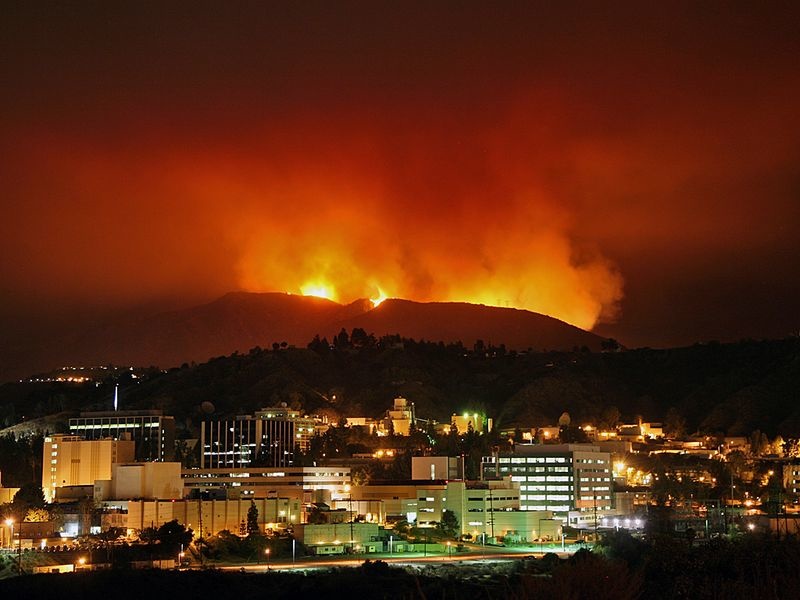
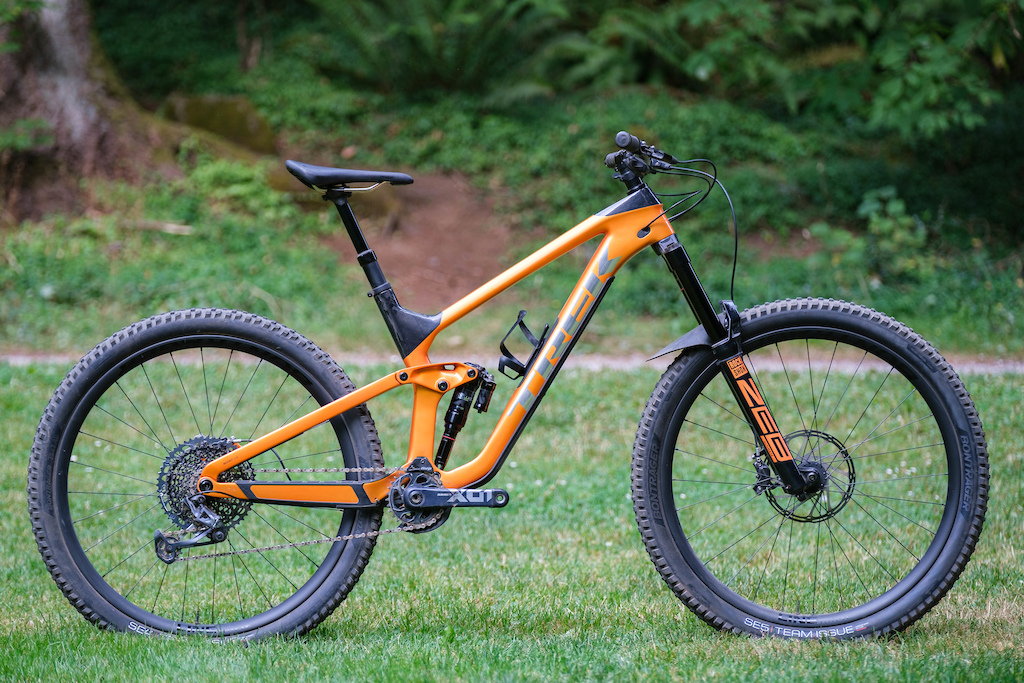
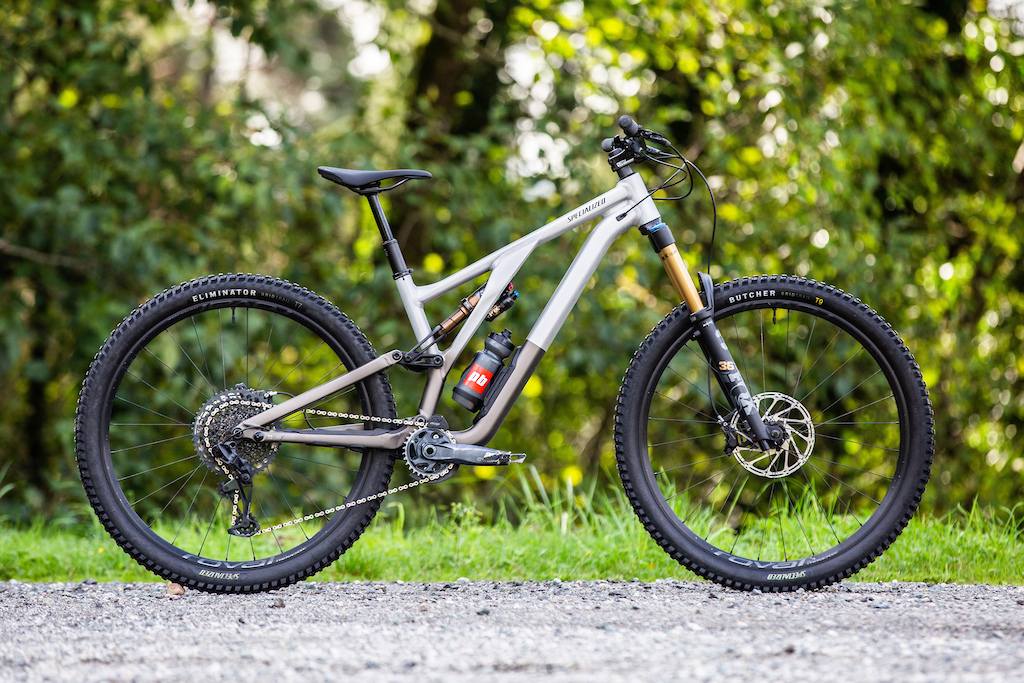
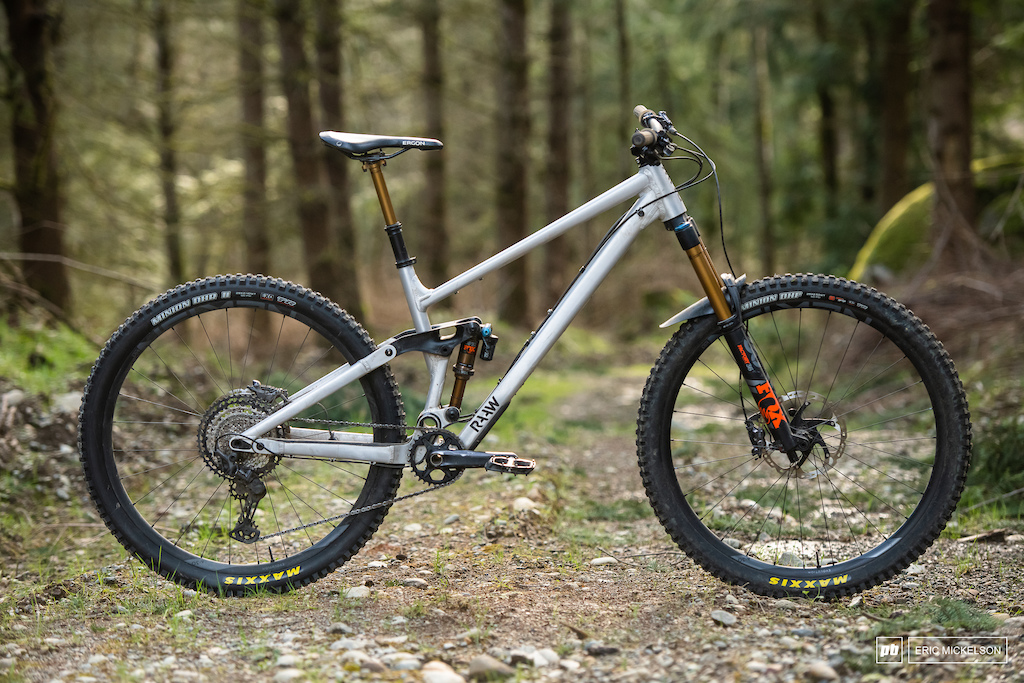


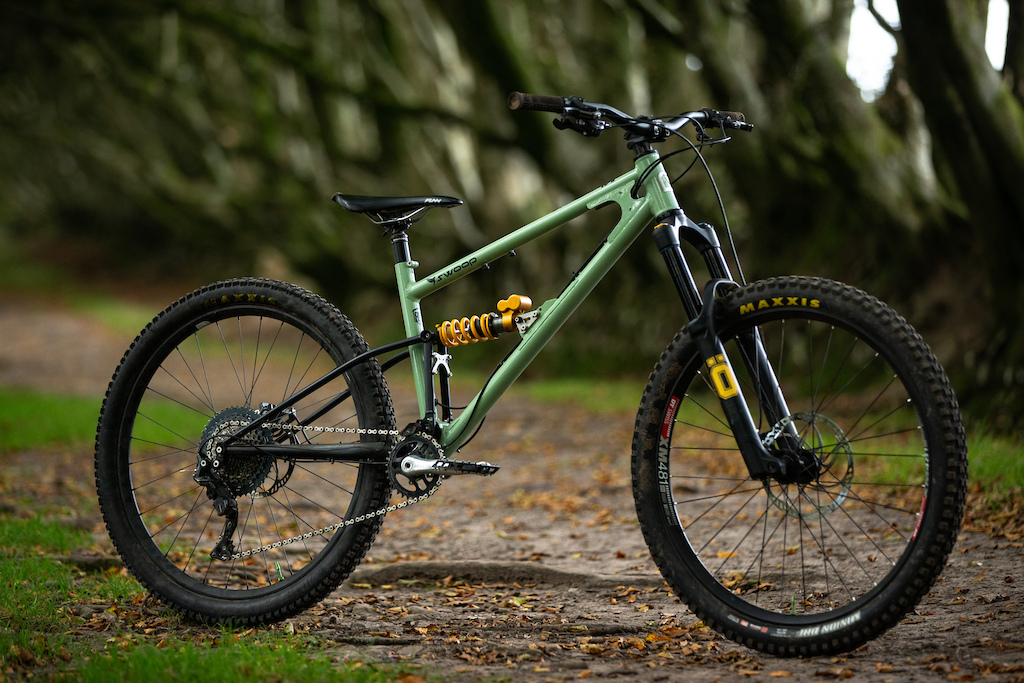
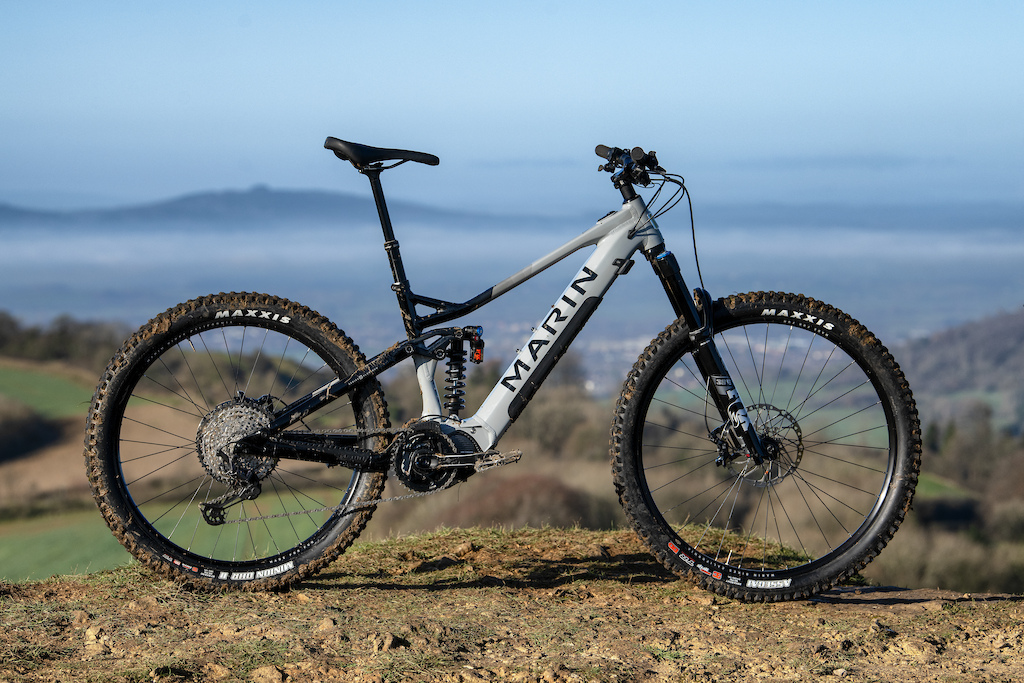
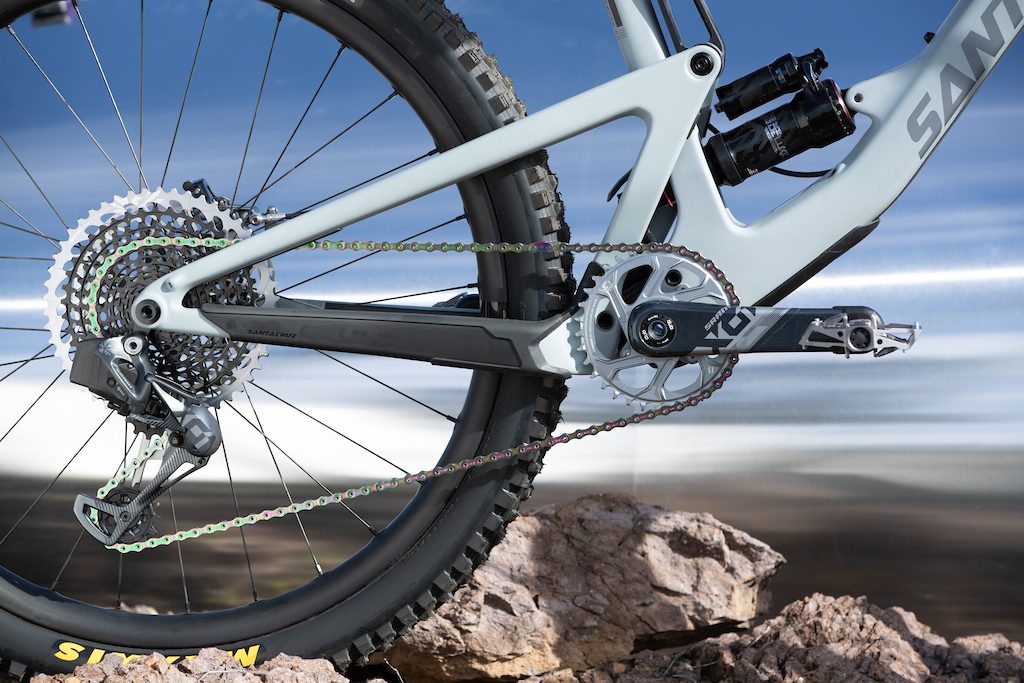

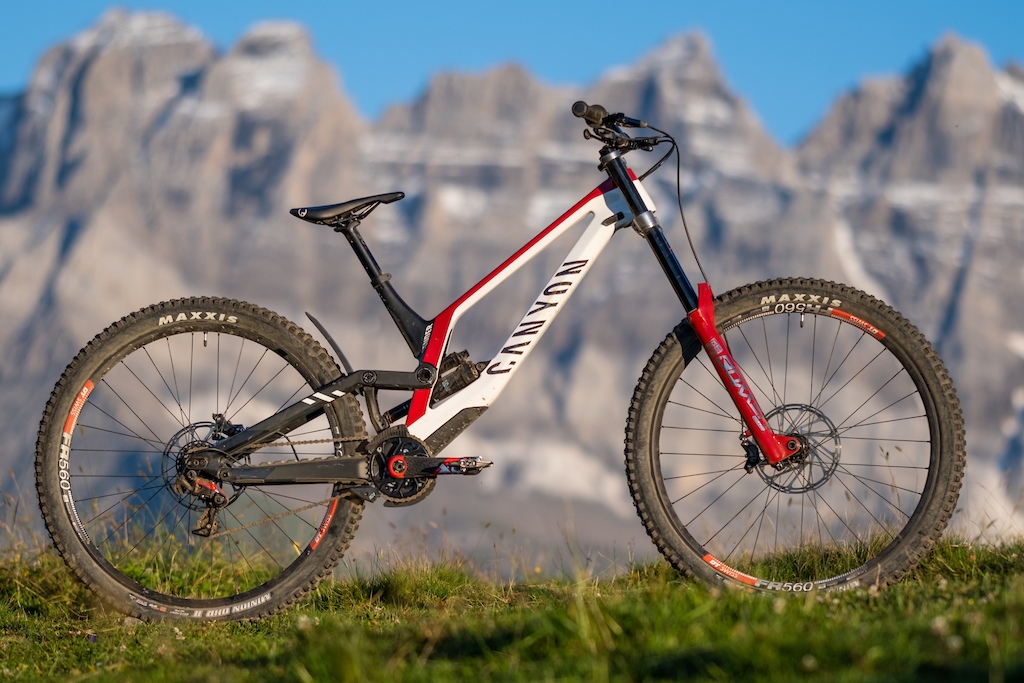
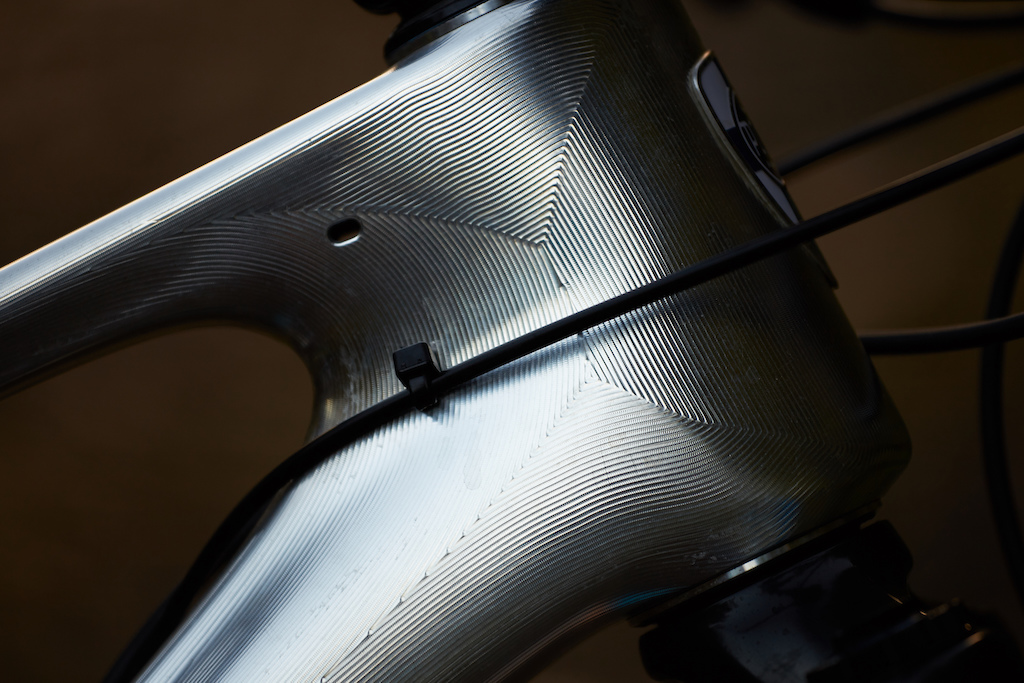
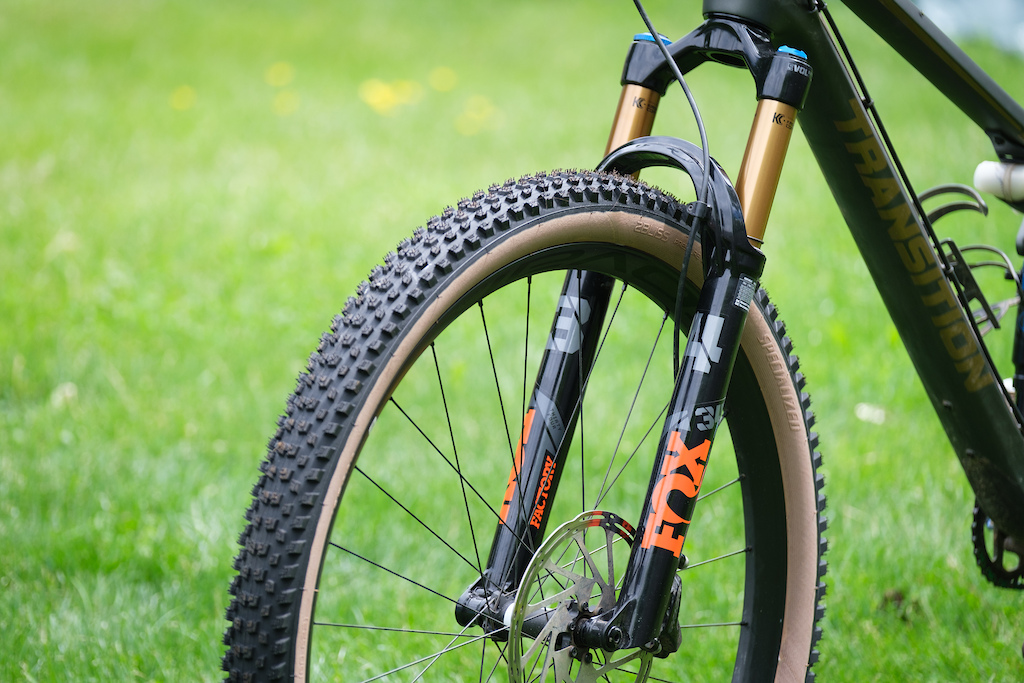



As someone who presumably knows a lot more about this than I do, what do you think of Trek's sustainability report? As I understand it, the figures they quote include scope three emissions and are calculated by a third-party organisation. A good start, wouldn't you say?
Also, the SBTI initiative which Canyon has signed up to appears to be a good framework to me, but again, I'd like to know the opinion of someone who works as a sustainability consultant.
It's a classic case of perfect is the enemy of good.
I’d be happy for the title to be “What are bike companies doing to reduce their carbon footprints, and does anyone care?”.
I think there is a definite generational/cultural divide on this subject. I would imagine a huge percentage of the 40-50 y.o. bracket really does not care about the climate cult.
My kids certainly do care though so I guess it’s here to stay. It will be interesting to see the lip service turn to concrete measurable changes as the younger generation gets more power over the coming decades.
You perfectly framed the problem: very few (almost no bike company) report scope 3 cats 1-3. and Transportation. End-of-Life. Value chain emissions are probably 98% of the GHG footprint of these companies, however, they "buy" themselves green through i-RECs, VER's and other market mechanisms.
Just because companies don't report it, doesn't mean it's not happening. Some companies may be doing more than others, it just isn't reported.
Hopefully this will change in the future.
The issues with COVID and supply chain have not helped matters, but some companies are ahead of their targets even with significant headwinds over the last 18 months.
In theory you are right. Unfortunately the reality i see on a daily basis is different. the companies that take action are eager to communicate and to show progress (also because it sells nicely).
A certain level of transparency is needed to understand a company's operations. this is also the reason why lots of companies report scope 1&2 but fail to report scope 3. the business practice of a company is shown there (as an example: if a company reports towards purchased goods i will be able to see from which country the steel or aluminum is sourced due to specific emission factors). not every company feels comfortable to show that level of detail.
honestly, covid did nothing. the reported emission reductions due to covid are already way passed and we are above 2019 levels. sad reality.
As for Trek I applaud them for releasing the report. Including scope 3 is a big deal and opening up facts like carbon frames are worse than alloy for example, is a big step and could hurt their bottom line. The bog hope is that this creates a cascade of reporting. If more comapnies start reporting fully there can be real comparison. WIth this we will see a drive towards genuine carbon reduction as thost that don't will be phased out of the market. No one will purposefully buy a frame or component that is categorically worse for the trails we ride and the planet.
I'm not sure that Cotic's assertion that all of the iron content in their frames is recycled can be correct, their tubes can come from recycled steel but because of the way electric arc furnaces work it can't just be iron. The emissions will be a lot lower than steel that comes from a blast furnace process, but it doesn't sound quite right (I'm an academic, we're pedantic at the best of times).
It's not good enough for purchasers to rely on their suppliers (like Shimano and SRAM) to do the right thing, pressure needs to be applied, or they won't do it. Legislation like CBAM (carbon border adjustment mechanism) will be be a big help in forcing suppliers to change their behaviour (it will cost more to buy from heavy emitting countries) but it will only work if everyone adopts it. It would be great to see the bike industry joining up to do carbon insetting into it's supply chain (carbon insetting is investing in a supply chain to reduce it's emissions), one bike company alone coudn't do it, but a consortium could and it would really help the big mutual suppliers to all bike companies become lower emitters.
This is a great article, and a great start, it's good to know that these things are being thought about in a sport that we love.
@mikerory: Further to the lack of definition regarding terms like "green", we also have a problem that there is no industrial standard to LCA. There are a lot of very good offerings but they all take different approaches. In the case of Reynold's LCA, it would appear that it lacks some fundamental knowledge to do with manufacturing, but then it probably doesn't have to have it.
We all want a clean world, we just need to get better at delivering it and start delivering it faster.
COVID did impact semiconductor supply chain heavily (along with other factors, including climate action and companies from other countries being forced to shut due to power outages to meet some of their targets).
@justanothermatt: All in for the side hustle!
@jaame Maybe have your kids fill you in on the basics, you've missed a bit.
Sure, it may very well be a case of greenwashing for the sake of upticking sales, but if a company is making sizable contributions and reporting it aptly, I personally am more inclined to buy a bike from them than another company that is making negligible amendments / is not reporting. We can send a market signal with our purchasing power as consumers to reinforce a strong commitment to sustainability. If Trek is making the biggest commitments and taking the most aggressive risks with their carbon strategy, then we reward that by all buying Trek (I've also never owned a Trek).
My next bike purchase will undoubtedly be strongly affected by the companies green initiatives.
Normal life back then is called extreme poverty in 2021.
We had a blast though, outdoors on our bikes, down the river, camping in the woods, playing football. A dook in the river was better than 3rd had bath water for a wash. Haha.
I remember when my home town got a tiny arcade and we had top gun or gauntlet to play. Well... We could watch the rich kids play until we got kicked out as there were 6 people in the arcade.
We shut down the entire planet for a year and CO2 levels remained within the year to year variation. How far will we go down this road... how much will we spend... how much will we alter our society... how much freedom will we surrender... before the masses come to realize that we do not have influence over this 5 billion year old planet's evolution.
If humans never existed... CO2 levels would be exactly where they are now. The planets geological processes control its atmosphere... and its going to do what its going to do... we are just along for a short part its journey.
Cleaner is better for ecological health, sure... and who wants a bunch of plastic pilling up everywhere... but to think we have ever impacted this planets course is just simple human narcissism and reflects the power and influence those seeking power have over weak minds.
Where do i report for reconditioning?
Also lots of irony in "Only elitist (I assume you mean scientists?) speak in absolutes." Most scientists spend their entire careers worrying about uncertainty and how to reduce it.
www.nature.com/articles/ncomms14845/figures/1
The planet is clearly in a warming cycle… there is nothing we can do to stop that. Instead we should accept the change and work toward adaptation.
Thought exercise for you… an opportunity to independently use your critical thinking and reasoning instead of what you have been conditioned and influenced to believe…
If Earth was in a cooling cycle right now… what would we be doing? Would we be pushing futile attempts to stop it?
Another sustainability consultant's input: Scope 3 is almost always the highest source of emissions for a product-based company. I couldn't agree with your comments more - we need to see brands tracking Scope 3 and setting SBTi goals. Plenty of fossil fuel companies publish their emissions...
I think Trek's report will spur some other companies into action, and it will be interesting to see which brands rise to the occasion. Be on the lookout for those actually creating change versus those hastily putting together a sustainability pledge to keep up with Trek. An actual materiality assessment would benefit most of these brands to know what sustainable initiatives to focus on.
A quick comment on carbon offsets: everyone loves trees, but it's challenging to measure their carbon sequestration ability. Plus, if you haven't calculated your emissions, then how can you rely on tree planting offsets as a reduction strategy? You don't even know how much to offset! You're just blindly throwing trees in the ground!
There’s lots more here: climate.nasa.gov
I won't call you a troll for having a questioning mind, hypotheses need to stand strong on their evidence, but this is an agreed upon theory, more defensible than the theory of gravity. The place for opinions is on on how we fix the problem, not if there is one.
I agree that if companies aren't measuring their carbon footprint accurately, they can't claim to be offsetting their emissions. But I would argue that some carbon offsets (assuming they're well vetted) are better than none, and none is the default for now. So I hope I don't seem naive for congratulating those who offset at least a little.
Thanks all for your insights on this thread. I never knew there were so many environmental consultants on PB, only that this is a complex topic and I'm way out of my depth here!
If you guys do end up setting up some sort of cycling sustainability group please keep me in the loop!
No bike company, especially the big ones like Specialized and Trek, are ever going to turn around and say
"..yeah our plan is to make less bikes, make them out of mainly re-cycled materials and also make them easy to re-cycle once they're at the end of their life. We're also only going to release new models when there are genuine innovations that make the model truely a better bike, not just half a degree off the head angle. Then as we are spending less on r&d for superficial small improvements, and less spending on marketing, because we shouldn't be encouraging you to buy our bikes when you don't really need one, we can then carry this saving across to sell our bikes to you for less money. This should hopefully get more people cycling rather than driving as more people can afford our bikes. We may then still make an ok amount of money as more people will be buying them, and anyway, profit isn't the most important thing in the world is it anymore, the environment is..."
They won't say that, will they.
The planet will be just fine without us, and doesn’t need saving.
> Doing more repairs instead of replacements for Reverb
However, I totally agree that it's the global economic system that needs to change. Greenhouse gases are the only pollutants that can be emitted mostly for free and without restriction. In my view, we need to put a price on carbon of at least $100 per ton of CO2e, so the cost reflects the environmental damage. That money could then be used to subsidise or invest in green alternatives, or simply be given back to the people as a small form of Universal Basic Income, which would more than cover the extra cost of living for most people. We didn't get rid of CFCs by making consumers feel guilty about buying deodorants or refrigerators; we did it by forcing manufacturers to find less damaging alternatives.
Sources:
www.youtube.com/watch?v=WWiX2edcBoA&;
www.youtube.com/watch?v=jtI27ODuukg&;
www.investopedia.com/terms/g/greenwashing.asp#:~:text=Greenwashing%20is%20the%20process%20of,company's%20products%20are%20environmentally%20friendly.
OR
Burning Question: Does the ever increasing, very often changing of "standards" in the Bike industry...... Have Targets To Reduce CO2 Emissions?
Consumption drives production. Consume less, and then those who produce for us (In the Global North) will indeed produce less.
Mountain bikes and their components are becoming more and more disposable because of industry practices.
Taking a couple steps to reduce your carbon footprint in manufacturing is just sh_tty lip service when the entire industry has shifted to a planned obsolescence business practice.
It's a nice touch but I call it BS. Just a good PR for new generations obsessed with sustainability while at the same time they have to have everything latest and greatest
You want to save the world? Feed the poor!
Give them a roof over their heads and some education.
So when we get one more billion of full fed and educated people maybe we will also get a chance to have a bit brighter future on this planet
The real challenge comes in identifying which changes has measurable impact, and which do not. Carbon accounting and independent eco-auditing will become more and more prevalent.
Let's just accept that when you use your bike, it will eventually look used. My previous hardtail frame from 2008 (which my daughter is riding now) has some slightly rusty spots here and there. But it doesn't affect the function and I doubt it affects the strength by much. It's old, it's been ridden, it looks like that, it's fine.
Massive props to @seb-stott for this article and for calling companies out. From the PB/Outside perspective, these are almost all bigger companies and big potential advertisers, so the risk isn't small. Ultimately, we're walking away from this a little more informed, and hopefully people at least think twice as to whether they truly need that new upgrade - and if they do, who best to buy from.
Coronavirus: Not happening
Benefits of mass immunisation program: Not happening
Global Warming: Not happening
(Near) Spherical planetary formation: Didn't happen
Trump inciting riot: Didn't happen
Holocaust: Didn't happen
Leftist conspiracy to make the world more woke: Definitely happening
Bill Gates using 5G to control us via implanted chips: Definitely happening
The internet is amazing, now anything can be true.
They are building coal plants with no scrubbers as quickly as they can, dumping trash into the ocean and racing to pollute the earth while the rest of us bicker about our emissions
www.worldometers.info/co2-emissions/co2-emissions-per-capita
www.ucsusa.org/resources/each-countrys-share-co2-emissions
Also good to link it to the big question of 'why' - direct answer here being that preventing environmental damage directly makes mountain biking more enjoyable. Simple but effective.
They boast this at trade shows saying look at us... we're saving the earth... Then they hand you a catalog with 100+ pages. After that they air freight in 1000's of products multiple times per year to keep up with demand. It's all joke for the companies to look good in the eye of the consumers to boost profits.
If Pinkbike keep put in show the good initiative, keep asking what industry does and why they don't do, it is a clear signal than people whant change.
Looking at the length of the comments section, it clearly encourage debat and discussion, it is also a nice point.
Pinkbike is doing is share of the job (just waiting for the public release of a third party audit
but we should still plant trees, just not come in and plant one species of the wrong tree.... however that's still probably better than no trees... trees release salts that trigger rainfall, contributing to more rainfall, more rainfall equals more biodiversity = which equals land restoration.
Locally we are seeing a big change in newer tree growth as the forests that are now of a more mature age are starting to become much more diverse.
but the bottom line is that we've got ~10 years to address a huge chunk of the emissions we are generating before we lock in decades of (further) negative climate change impacts -- and trees planted during that period aren't going to do anything to address that
It's nice that they can say they lead the industry by making their printing operation more sustainable, but the ultimate goal in that printing operation is to sell as much polytetrafluoroethylene products as possible.
Don't believe any of this bullshit.
Example: "We use alloy 'cause carbon is worse" means nothing unless you've gone into where the raw materials (bauxite for example) came from, how they were shipped to be refined and what power source was used to process them. We are just scraping the surface in many of these reports.
Aluminium may use more power to recycle but can be done over & over again whereas carbon frames get land filled. Struggle for choice to buy a proper enduro bike that isn’t carbon. And ‘pedal’ bikes now need ‘batteries’ how green is that??
Whats the lifetime of an ebike?
Not that striving for more sustainable practices is not relevant, it just seems that we’re a bit fixated. The up-side of using (at least the appearance of) carbon emission production transparency as a selling point is that it places the mechanism of change where it belongs: in the hands and on the shoulders of the consumer.
There's room for improvement, but I think excess focus on the bike industry *needing* to reduce CO2 emissions is more of a feel good exercise. The focus is better spent looking at the major contributors to climate change.
The target is quite simple : -55% of CO2 tonnage between 2020 and 2030 (Paris agreement)
...when they become widely available again?
Buy. Buy. Buy. Buy. Buy. Buy. Buy. Credit is cheap, and they're giving it away! Buy now. Buy now. Buy now.
Basically the west needs to lower their standard of living to save the world. Who’s actually doing this. No more flights, no more cars. Locally sourced food. No meat either. Riding an aluminum bike isn’t going to cut it. We need to radically transform our lifestyle to use less energy. And the rest of the world has to stop growing too. I did my part. I recycled my wine bottles. Everyone else needs to step up.
Cant make this stuff up.
Having been a part of a carbon capture program as a farmer supposedly sequestering carbon, offsets are all about making regulators, consultants, and middlemen a bunch of money for generating and pushing paper. Recycled paper, I’m sure.
No actual testing of soils to see if there is carbon being sequestered, no farm visits to see if the required practices are being followed.
Only forms to fill out and photos of seeding equipment one allegedly owns and uses (taken by the farmer and submitted).
It's impossible to be worried about climate change while still importing 1 million immigrants to the frozen north every year.
See 'Century initiative' for Canada's plans to triple it's population by 2100.
Thats how I know it's all a big f*ckin scam.
That said, it wouldn't be easy, and more people does make it more difficult. And I think I dismiss population to quickly in that article (although to some degree I blame the editor and the word limits). I also agree that we should focus on further lowering birthrates in rich countries even if they are already low, for the reason you say.
The main problem with population is that it just takes so long to change. Even if literally zero human beings were born globally from today, the 2050 population would still be about 5.5 billion people
theconversation.com/how-10-billion-people-could-live-well-by-2050-using-as-much-energy-as-we-did-60-years-ago-146896
Rapid population growth in Africa has and will continue to make food and water provision more difficult. But climate change will make these issues much worse, and those changes are due primarily to overconsumption in wealthy countries (like ours)
These are two issues that are obviously deeply related, but I think they are, to some degree, more separate then people think. Overconsumption is the most important thing when we are talking of current ecological impacts and how to reduce those in the coming decades (as we must for climate change). But if we are talking of how many people are going to suffer from future environmental change, and how to limit global ecological impacts say, post-2050, population growth may be a more important factor
www.theguardian.com/environment/2021/oct/09/eco-wood-stoves-emit-pollution-hgv-ecodesign
Got any other handy facts I can pull out when I'm feeling defensive?
sources: Firepowermoney.com
It's because the governor of California is legitimately financially incentivized to allow them to happen. There is an investigation into his involvement with PG&E who started a wildfire a few years back that destroyed thousands of homes. Gavin essentially gave the company a cash bail out (with taxpayer money go figure), which was in turn paid out to a private lobbyist for PG&E (a friend of Gavin, go figure), and then in turn the lobbyist made a hefty donation to Gavin's wifes' charity.......
but yet people still support him because they think to criticize any democrat official is to be racist, anti science, bigoted etc.
the amount of willful ignorance is astounding, these intellectual cowards won't even have a discussion nowadays because they know once it gets down to facts their whole argument falls apart. Democrats in CA actively support corruption.
Two of my riding mates are scientists and good ones, half their time is spent writing grant requests so they can eat. If you don't sell out to big oil, and very few do, as a scientist you are generally not in money at all.
Going to go out on a limb and say that's not even misinformation you received, that was just random shït felt like typing
again, please show me in your link where they have evidence that wildfires have STARTED AS A DIRECT RESULT of climate change. not just that they are aided by the warming climate. thanks.
duckduckgo.com/?q=irony+definition&atb=v247-1&ia=definition
If pedantic internet point scoring is your thing, and I believe it is, then I'm happy to tell you that you're right, it would be hard to prove that 'DIRECT' correlation.
(Nice use of caps btw, always convincing when it comes to internet word jousting).
If you take that purile victory as a sign you're right about climate change not being real, then you're flying in the face of scientific consensus, good luck to you.
Climate change has yet to be found as the direct starter of any wildfires. So in effect, you are being irresponsibly ignorant and allowing for the possibility of additional wildfires by focusing on aggravating factors instead of direct causes.
My only point is that focusing on aggravating factors instead of direct causes means more people will lose their homes and lives while you and your intellectual equivalents refuse to acknowledge the real culprits.
thanks for proving my point.
I, like mcozzy, have also made the decision to not have children. As has 1 of my sisters
Your comment doesn't reflect any nuance regarding overpopulation. Your reference to all people as shit stains tells me otherwise. It tells me you're a cynical, pessimistic, resentful person. Your comment just reads as a projection of your own self-hatred.
I urge you to do some reflection on this.